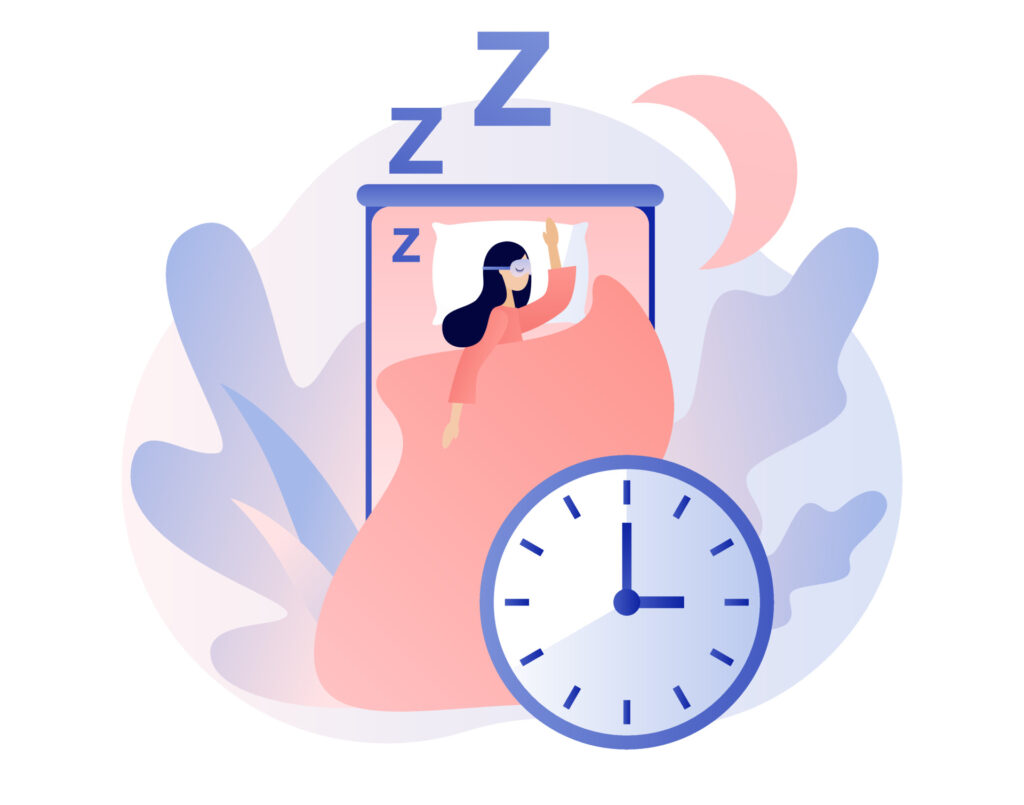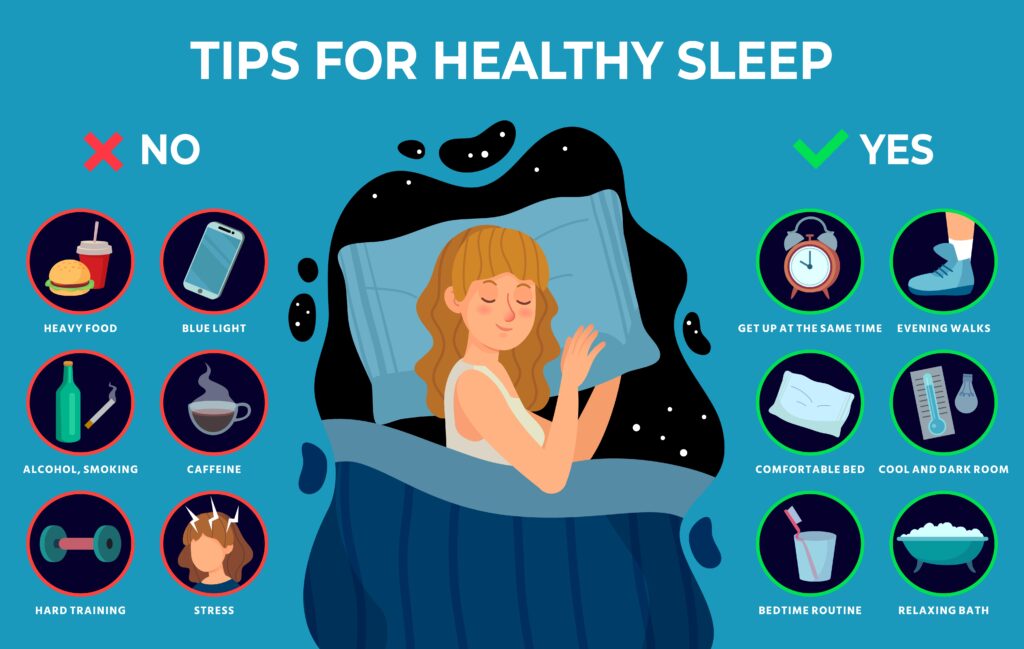- About
- Programs
- After School Classes
- All-School Assemblies
- The BE KIND Business
- The BE KIND Community Education Center
- The BE KIND SCHOOL
- BE KIND on the MOVE
- Classroom Resources
- #CyberSkills
- Family Engagement
- Fitness Programs
- Gardens
- Grace’s Group
- Health & Wellness
- Summer Programs
- Teacher Training
- Wellness Wednesday
- Athletes for Arizona
- Events
- Get Involved
- Donate
Sleep Tight, Think Right
- Home
- Wellness Wednesday
- Emotional Wellness
- Sleep Tight, Think Right
How Quality Sleep Improves Mental Health
The Science Behind Good Sleep And Cognitive Wellness

Sleep Tight, Think Right
Did you know that sleep is one of the most important things we can do for our COGNITIVE mental wellness? Studies have shown that getting enough sleep can help improve our attention span, memory, and problem-solving abilities. And who doesn’t want to be a problem-solving ninja? Unfortunately, our busy schedules and non-stop stimulation from screens and devices make getting a good night’s rest tough. That’s where we come in. To continue our series for May’s Mental Health Month, we’ll share tips and tricks for getting the best sleep possible, along with the science behind sleep and cognitive wellness.
So, get ready to snuggle up with your favorite blanket, and let’s explore the world of sleep and its impact on our cognitive mental health.
Sleep and mental health: What does the science say?
There is a growing body of research linking sleep to cognitive mental health. Sleep is important for the restoration and consolidation of cognitive processes, including learning, memory, and attention.
- Sleep improves learning and retention.
Research suggests that sleep plays a critical role in cognitive processes by helping to consolidate memories and integrate new information. During sleep, the brain processes and stores memories, which can lead to improved learning and retention of information. In fact, studies have shown that sleep deprivation can impair cognitive functioning, including attention, working memory, and executive function. - Sleep has been linked to emotional regulation and mental health.
Lack of sleep has been associated with negative mood states, such as increased anxiety and depression, and may even increase the risk for developing mental health disorders. On the other hand, getting adequate and restful sleep has been associated with improved emotional regulation and overall cognitive well-being. - Getting the proper amount of sleep is important for academic (and professional) achievement.
Rest helps students stay focused and improves concentration and attention. It also improves attention and behavior, which can impact academic or work-related performance. - Memories are strengthened during sleep.
Research has found that memories of certain procedures, like playing a melody on a piano, can improve during sleep, especially in deep stages of sleep. REM sleep, the most active stage of sleep, helps link related memories together, often in unexpected ways.
Overall, the science linking sleep to cognitive and mental health suggests that getting enough high-quality sleep is essential for optimal cognitive functioning and emotional well-being.
Be Kind to Your Brain!
Improve your Sleep Patterns with these tips and tricks:
- Stick to a regular sleep schedule: Try to go to bed and wake up at the same time every day, even on weekends. This will help regulate your body’s clock and improve the quality of your sleep.
- Create a relaxing sleep environment: Make sure your bedroom is quiet, dark, and cool. In fact, the Sleep Foundation found that most doctors recommend a bedroom temperature of 60-67 degrees!
- Limit caffeine, alcohol, and nicotine: It’s recommended to avoid consuming these substances at least 4-6 hours before bedtime, as they can interfere with your sleep. Although alcohol can cause sleepiness and allow some to fall asleep quicker, the quality of sleep is hindered when the liver enzymes break down alcohol, causing a disruption in sleep cycles.
- Establish a bedtime routine: Engage in relaxing activities like taking a warm bath, reading a book, or practicing yoga before bed. This can help signal to your body that it’s time to wind down and prepare for sleep.
- Avoid screens before bed: The blue light emitted by electronic devices like phones, tablets, and TVs can disrupt your body’s natural sleep-wake cycle. New studies find that using a phone on “Night Shift” mode, which limited the blue light, can still negatively impact sleep quality. Yikes! It’s best to avoid screens (even on “Night Shift”) right before bed.
- Exercise regularly: Regular physical activity can help improve sleep quality and duration. However, it’s best to avoid vigorous exercise close to bedtime (at least 1 hour prior) as it can raise your heart rate and temperature and affect your hormones that produce sleepy cues.
- Manage stress: Stress and anxiety can interfere with sleep. Practice relaxation techniques such as deep breathing, meditation, or visualization to help calm your mind and prepare for sleep.
- Avoid large meals and beverages before bed: Eating a heavy meal or consuming a lot of liquid before bed can make you uncomfortable and disrupt your sleep. Try to eat and drink earlier in the evening and limit your intake to close to bedtime. This is a “win-win”, better for your digestion AND your sleep quality.
So, whether it’s creating a relaxing bedtime routine, investing in some comfy pillows, or simply powering down your devices a little earlier each night, there are plenty of ways to improve your sleep patterns and get the rest you need. Stay tuned for the next Wellness Wednesday! In the meantime, sweet dreams and happy snoozing!
Published on May 17, 2023
Questions? Comments? Want to contribute to the Wellness Wednesday Blog?
Send your ideas to info@bkpp.org.

Learn More about The Be Kind People Project®
- Programs
- After School Classes
- All-School Assemblies
- The BE KIND Academy
- The BE KIND Business
- The Be Kind Break
- The BE KIND School
- The BE KIND on the MOVE
- #CyberSkills
- Family Engagement
- Fitness Programs
- Gardens
- Grace’s Group
- Health & Wellness
- Summer Programs
- Teacher Training
- Wellness Wednesday
- Athletes for Arizona
Copyright © The Be Kind People Project | Privacy Policy


